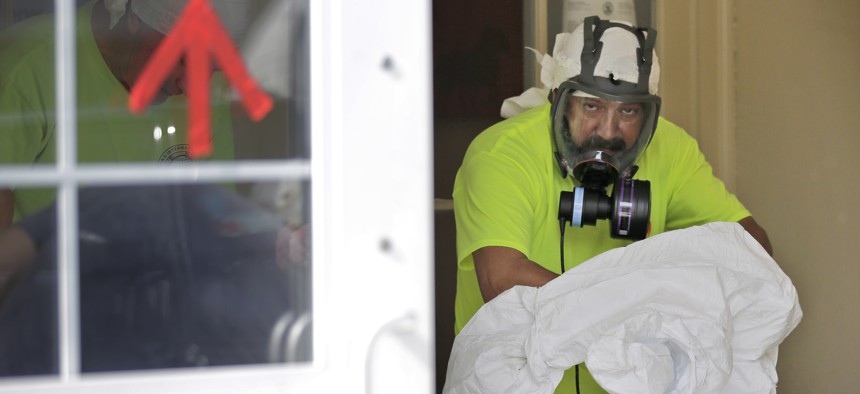These are busy times for decontamination. “The phone’s blowing off the hook,” says Thomas Licker, the division manager of Infection Control Technologies in New Jersey. The company, which helped manage Ebola-related cases in 2014, is stocked with disinfectants like quaternary ammonium, ionized hydrogen peroxide, and swabs that detect the presence of living organisms. Licker says the company has fielded more than 1,000 calls from people wondering what to do about the new coronavirus, which causes the disease COVID-19.
Until very recently—just two weeks ago, really—deep cleaning to most people meant scrubbing the fridge and dispelling dust bunnies under the bed. Then came the threat of the coronavirus, and deep cleaning suddenly took on a new public-health urgency. Schools started to close for deep cleanings. So did restaurants, a casino in Oregon, a San Antonio mall, the capitol building in Connecticut, and untold offices around the country—maybe even your office. In this time of pandemic, we’re not just cleaning but deep cleaning—a phrase blandly reassuring and suddenly ubiquitous.
What exactly it means seems to depend on who is doing it. In some cases, schools or businesses have gotten existing custodial staff to wipe down frequently touched surfaces—doorknobs, keyboards, counters, handrails—with disinfectant. In others, they have brought in professionals, protected under Tyvek suits and respirators, to wield electrostatic sprayers that blanket the room in a mist of disinfectant.
To be clear, expensive, full-on disinfection isn’t strictly necessary for businesses without a known or even suspected case of the coronavirus. The Centers for Disease Control and Prevention currently recommends that businesses do routine cleaning of frequently touched surfaces but not additional disinfection. (Cleaning physically removes germs, disinfecting kills them, and sanitizing reduces the number of germs through either cleaning or disinfection.) But this hasn’t stopped some businesses from asking for a more thorough—and more reassuring—service.
“A lot of calls they’re getting are fear-driven,” says Norris Gearhart, a consultant for the industry. He adds that uncertainty about the virus is a big part of it. We don’t know exactly how many people are infected, because of the lack of testing in the U.S. We don’t know exactly how long the virus survives on surfaces, because this particular coronavirus is so new to science. (Just on Tuesday, scientists posted a preprint, which has not been peer-reviewed, suggesting that the coronavirus is viable for two to three days on plastic and stainless steel.) In this time of uncertainty, of course people are looking to the most expensive, high-tech, and thorough option—even if it’s probably overkill.






